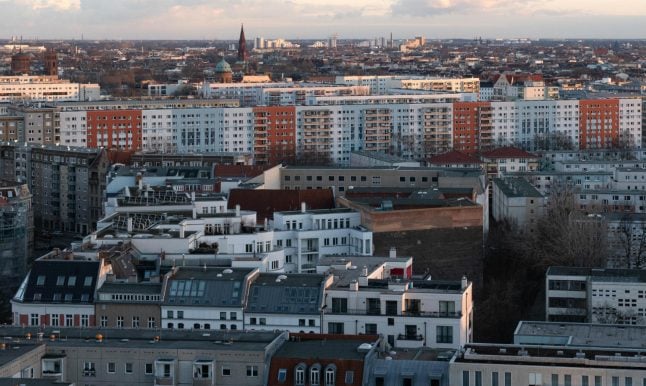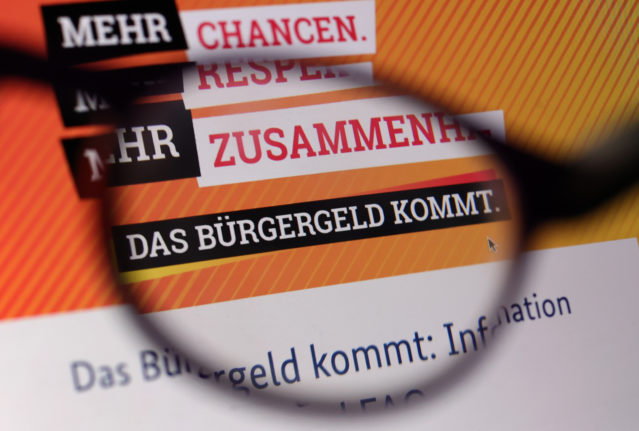But although experts say rents have risen sharply in cities, in some parts of Germany this is not the case.
According to the report by the Central Real Estate Committee (ZIA), between 2005 and 2018, rents for new apartment rentals in nine cities rose by more than 50 percent. In addition to Munich, Berlin and Stuttgart, these cities were Ingolstadt, Würzburg, Augsburg, Nuremberg, Osnabrück and Heilbronn.
SEE ALSO: The complete guide to how you can (still) live cheaply in Berlin
At the lower end of the scale are mainly industrial cities in North Rhine-Westphalia (NRW) such as Mülheim, Solingen, Oberhausen and Wuppertal, as well as municipalities in the east, such as Chemnitz or Halle. In all these cities, the rent level is “lower than in 2005” in real terms, i.e. taking the inflation rate into account, according to the report.
On average Germany-wide, anyone who moved homes in autumn 2018 had to spend €7.06 per square metre per month for their new apartment – 3.9 percent more than in the previous year. These costs are 'cold' – before adding on bills etc.
SEE ALSO: Where in Germany it now pays to buy a home instead of renting
In Berlin in autumn 2018, tenants who moved house during that time had to pay 9.2 percent more than in the previous year. On average the cost was €10.04 per square metre per month.
As a result, Berlin is now about as expensive a city to live in as Cologne and Düsseldorf, reported the Berliner Zeitung.
In Munich, anyone who moved homes in the last few months of 2018 on average had to spend €16.54 per square meter, while the lowest rent average during that time was found in the Höxton district, in North Rhine-Westphalia, where it was €4.54 per square meter.
The report predicts further hikes in the cost of renting and buying, increasingly also in the surrounding areas of major cities.
“The rising price level is an expression of the continuing imbalance between housing supply and demand – especially in the growth regions,” said economist Carolin Wandzik, Managing Director of the Institute for Urban, Regional and Housing Research.
People fleeing cities due to rent explosion
High housing costs in inner cities are driving more tenants and buyers into the surrounding areas of large cities, the report found.
“Due to the rising prices in the centers, the migration to the surrounding area has again increased significantly,” Wandzik said.
 Flats in Munich. Photo: DPA
Flats in Munich. Photo: DPA
This is true particularly for families and young professionals, who are being drawn to the surrounding area of cities and the suburbs, according to the ZIA report .
House price divide in Germany
The country is also divided when it comes to buying property. On average, house and apartment prices have risen by almost 70 percent in all major cities over the past 13 years.
Housing prices in the capital rose by 15.2 percent in 2018 compared to the previous year.
But there are also a number of large cities in which purchase prices have hardly risen, despite historically low interest rates. Here, too, this applies to industrial cities in NRW, which have hardly gained new citizens in recent years. “These cities should be given more attention,” said Harald Simons, board member of the Berlin Empirica Institute and one of the real estate experts at Tuesday’s event.
Investors might be interested in the high yields that can be achieved by letting in these cities because of the low purchase prices. Citizens could “benefit from the low housing costs, and politicians should pay more attention to these cities in order to relieve the tense markets elsewhere,” Simons added.
But people are still drawn primarily to the so-called “A-cities” like Berlin, Hamburg, Munich, Cologne, Stuttgart, Frankfurt am Main and Düsseldorf. These cities continued to record rising population figures.
“Losses from internal migration were more than offset by immigration from abroad,” said Wandzik.
Rent and house prices will not go down
The experts do not predict that the real estate market will reverse its trend this year. Particularly in urban regions, it can be assumed that the cost of renting and buying will continue to rise significantly.
They say the problem is that too few homes are being built. This concern is being examined by an alliance of 34 organizations and associations – from the German Tenants' Association, IG BAU to the Central Association of the German Construction Industry – which spoke on Tuesday.
They fear that five months after the government’s housing summit, the federal government, the states and the municipalities will “once again lose sight of the urgency to push ahead politically with the construction of new housing”.
The alliance called on the coalition to spend more money on social housing. In 2017 alone, 45,000 social housing units had fallen out of rent and disappeared from the market, they said.




 Please whitelist us to continue reading.
Please whitelist us to continue reading.
Member comments